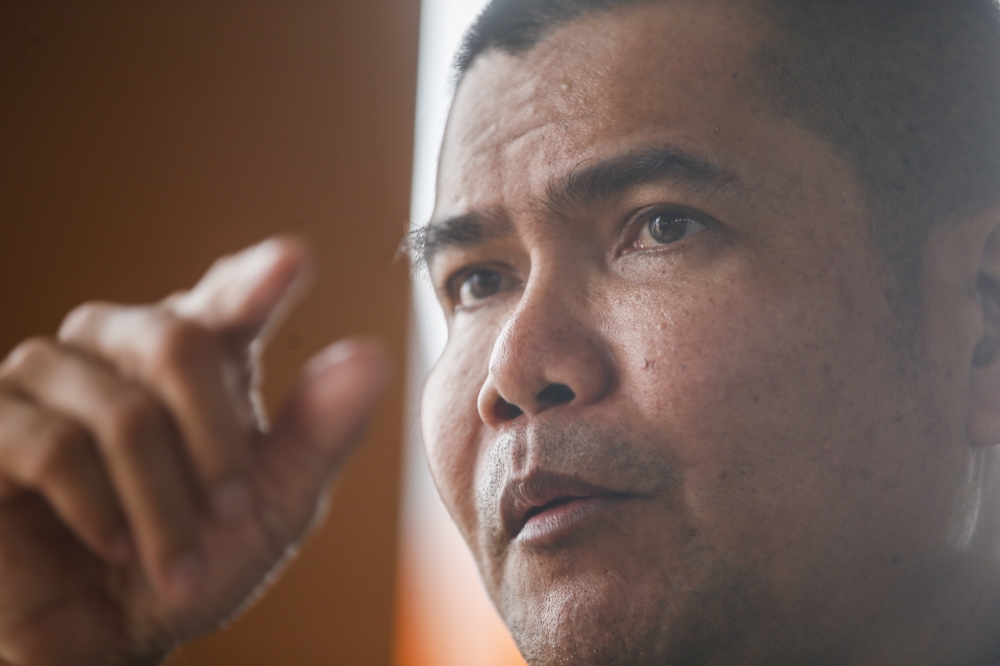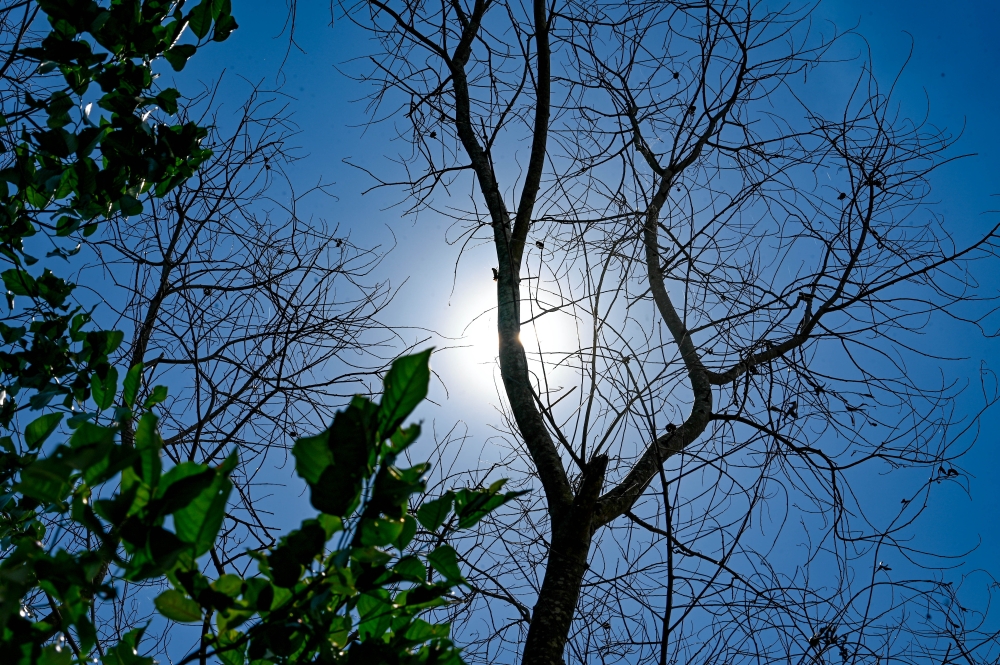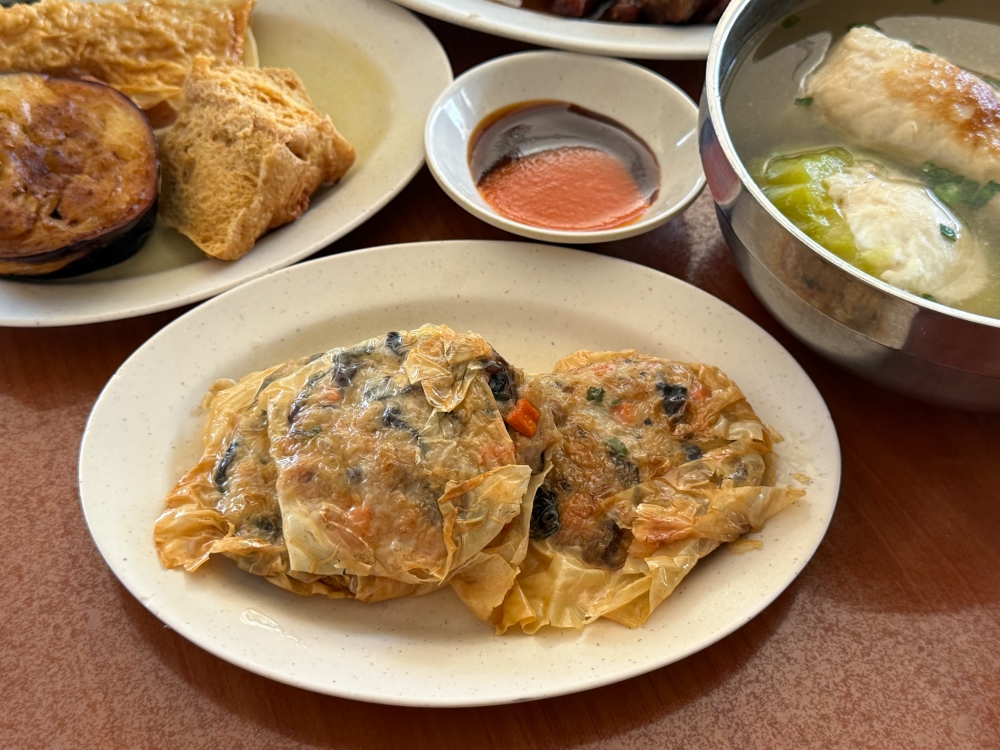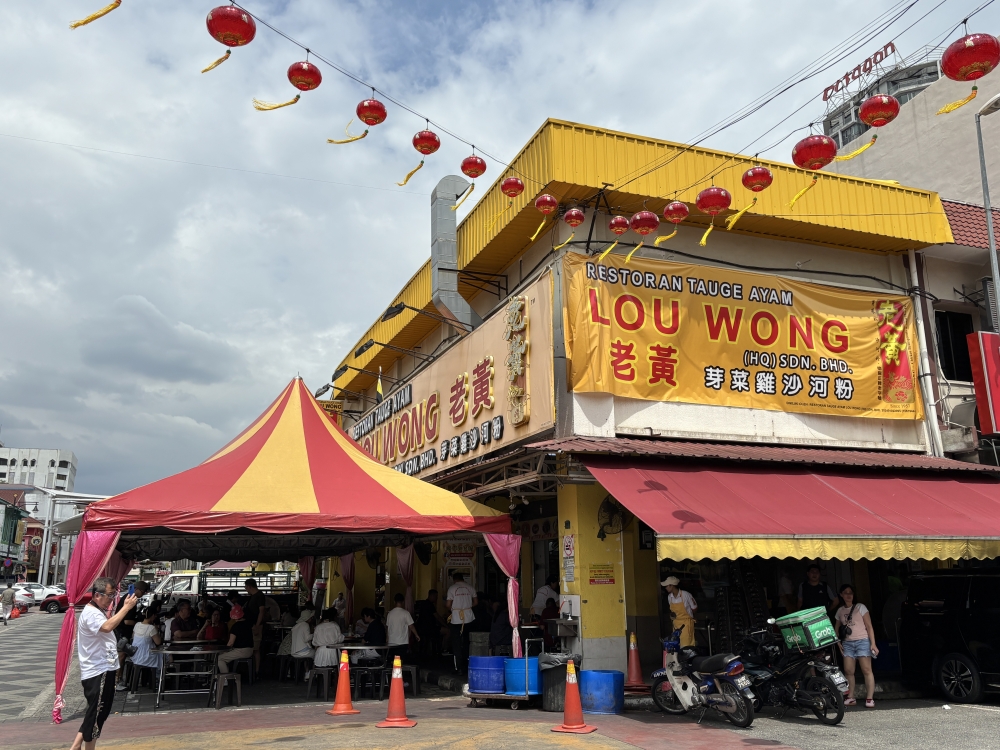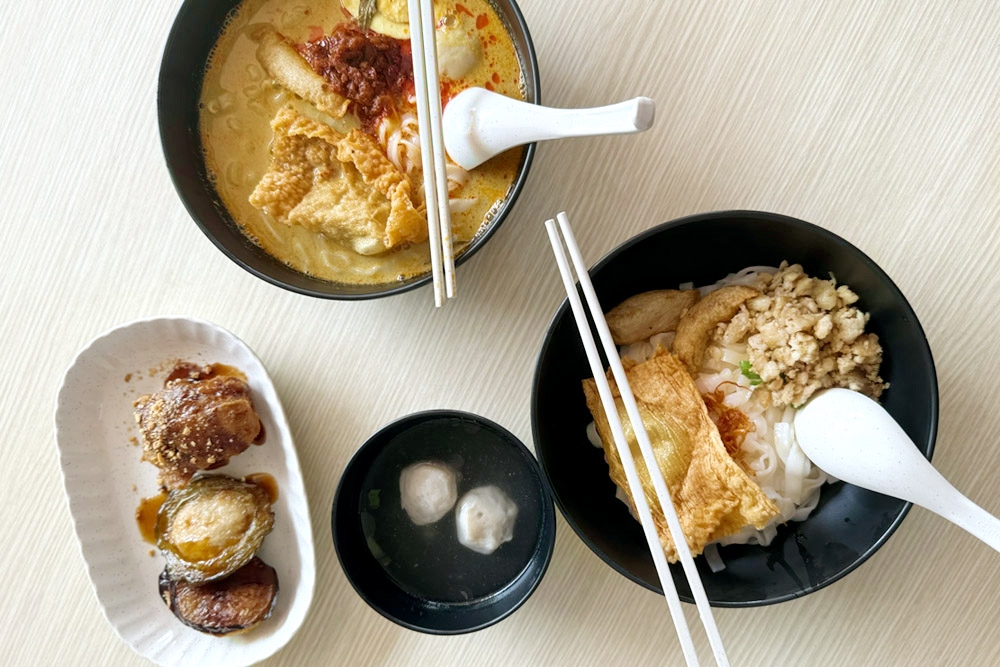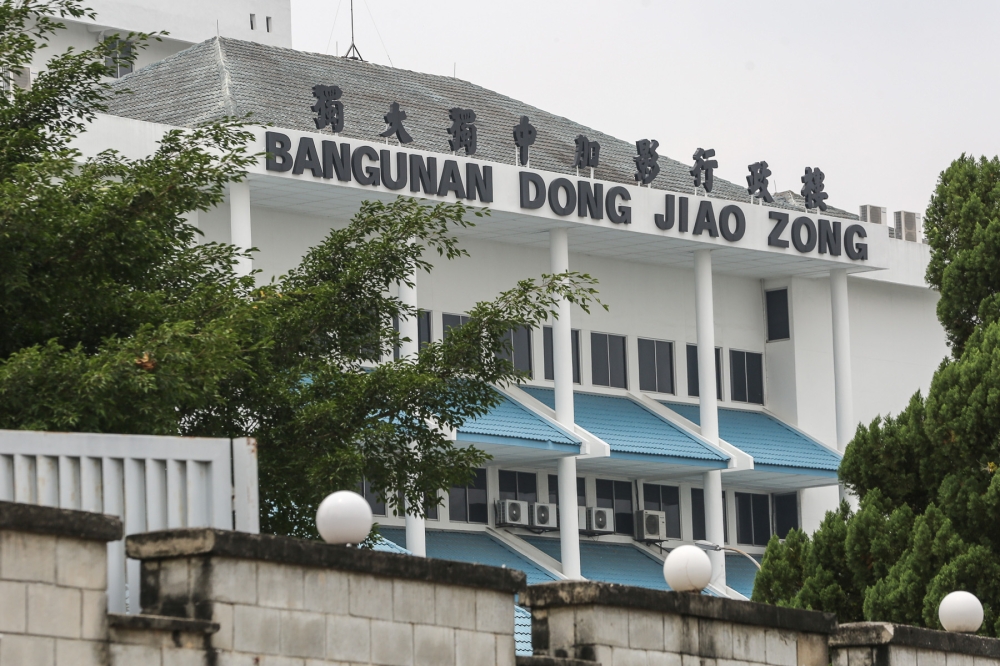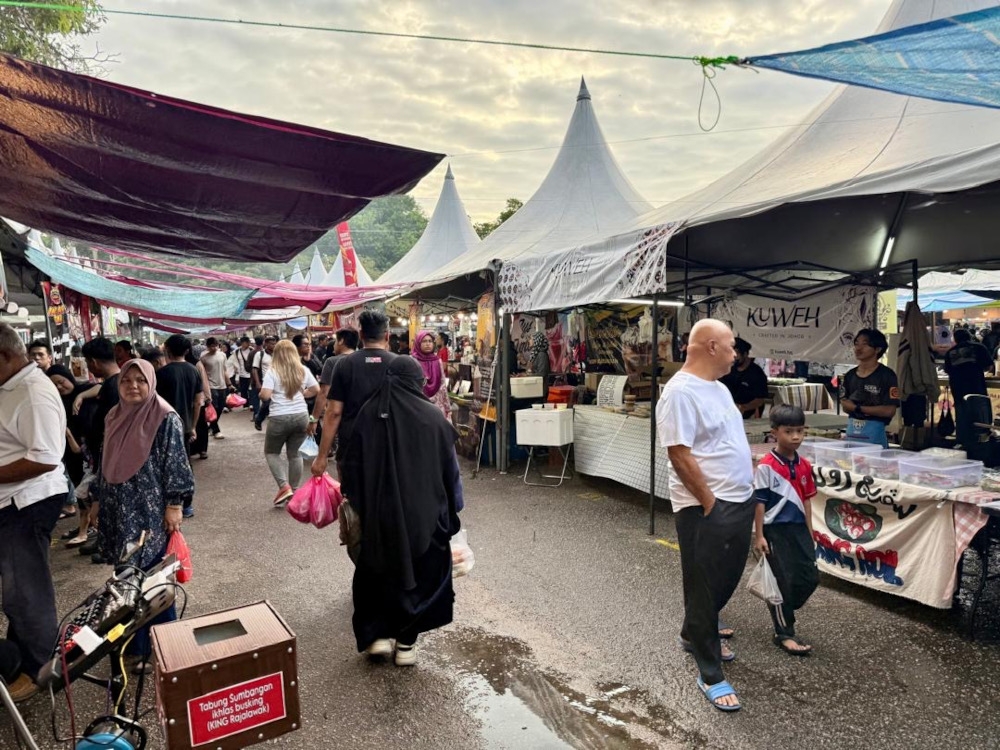TAIPEI, Nov 8 — The world is harsh and unforgiving. Every new day, every fresh hour, brings another calamity, it seems. It’s easy to understand the urge to get away or simply hide.
For Taiwanese tea lovers, escape — fleeting as it is — can be as easy as dropping by Hermit’s Hut and indulging in an afternoon of brewing a pot of orchid-scented Aged Tie Guan Yin or a mellow Ancient Shui Xian, a cliff tea famous for its buttery aroma and sweet aftertaste.
Hermit’s Hut was started by tea collector Vicky Chien as both a retail shop for fine teas as well as a temple for the traditional tea ceremony.
Brewing Chinese tea the old way is a slow, practised art: calming the soul while invigorating a tired palate.
Located in an affluent neighbourhood off Zhongxiao East Road in Taipei’s Xinyi District, the tea haven is inconspicuously nestled in a row of shophouses.

Past the shrubbery, faint Chinese calligraphy announces the shop’s name — sān jìng jiù huāng — which comes from the classic poem “The Return” by Tao Qian (365-427), one of the greatest poets of the Six Dynasties era.
What are we returning to? To answer the question, we knock and enter the shop.
Inside, it’s more subdued and serene. Wooden tables act as ceremonial workstations for different parties or the lone tea drinker, enjoying each cup by turning the pages of a good book.
The spare, minimalist tea room invites everyone to stay in the moment. Time stands still.
Our server comes to our table to share about their extensive tea menu, and to show us the step-by-step process of tea brewing so we may continue at our leisure later.
Given our predilection for subtle flavours, she recommends a white tea which is minimally processed — neither rolled nor fired, to prevent any oxidisation — and thus retains a vibrancy that’s akin to leaves barely open and freshly plucked.

Indeed, white teas are thus named as their young buds are covered with white fuzz whilst their leaves have yet to unfurl. Two of the more famous white teas include Bai Hao Yin Zhen (Silver Needle) and Bai Mu Dan (White Peony).
We select the 2013 Old Tree Bai Mu Dan which comes from the owner’s exclusive collection of white teas.
Typically water with temperatures of between 85°C and 90°C is used for brewing tea though an additional 3-5°C for white teas is acceptable for a more intense flavour.
For the 2013 Old Tree Bai Mu Dan, the suggested temperature is 88°C. Still, we are careful not to over-steep our tea: we begin with 40 seconds for the first pour, 35 seconds for the second and third, 45 seconds for the fourth, and one minute for the fifth and final steeping.
There’s an art to brewing tea, but clearly there is a precise science too!
Every table conducts their private tea ceremonies in companionable silence. Conversations, if any, are but whispers. This is a refuge. But what are we running away from, truly?

The name of the shop — sān jìng jiù huāng — offers a clue. It comes from a pair of lines in Tao Qian’s poem, which is translated as —
The three paths are almost obliterated
But pines and chrysanthemums are still here.
— and describes how, in life, our path often has obstacles. Yet for those of us who are mindful and observe, we will find flowers still growing regardless. Beauty persists.
These blooms keep a low profile, and so it is with fine teas and light teas: never loud, never having to shout.
In Tao Qian’s time, scholars might be expected to endure living conditions that are very barren whilst in pursuit of excellence.

But what doesn’t kill you only makes you stronger, strengthening your spine like bamboo that bends but never breaks.
The Taiwanese pride themselves on strength of character and moral honesty. A well-brewed cup of tea is not dissimilar: unlike strong-tasting fast food, good tea appears almost prosaic that it’s easy to forget it has thousands of years of wisdom behind every sip.
We are invited to look deeper, past the surface. The teahouse, by its very name and nature, nods at returning to a simpler life, and the gratitude one feels for it.
As befitting a sanctuary and an altar to the delicate fragrance of lighter teas, there are no harsh aromas or greasy bites here.
No kitchens with thunderous woks. Instead these often floral teas are paired with a tiny selection of cookies, cakes and sweet tangshui soups.
Handmade biscotti offers a bit of a crunch from almonds, pumpkin and sunflower seeds. For something fluffier, there are osmanthus rice flour cakes filled with sesame paste. Purple rice sweet congee with adzuki beans, milk and tangyuan dumplings warm the heart on rainy afternoons.

In the evenings, you can get ready for a night out by dropping by Hermit’s Hut for a cocktail. These, naturally, come with a hit of their exceptional teas, brewed in-house.
Our tea server recommends their Rocky Charm, a rum-based cocktail infused with creamy Shui Xian cliff tea. Expect notes of ripe berries such as hawthorns and sour cherries, and a long lasting woody fragrance.
Ah yes. Hermit’s Hut is a place where one escapes.
Is it a return to a more innocent time? Hardly. Sun-Tzu and The Art of War comes to mind. Hermits can’t hide forever.
But a respite helps the soul rejuvenate and face the real world. Perhaps the lesson is simply that there is no world more real than the world we inhabit in the present.
We live only in the moment, not in far-flung futures or lost dynasties. There is only here and now.
Hermit’s Hut (三徑就荒)
No, 15, Alley 46, Lane 553, Section 4, Zhongxiao East Road, Xinyi District, Taipei City 110, Taiwan
Open Mon-Fri 1pm-8pm, Sat-Sun 11am-8pm

